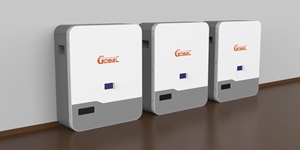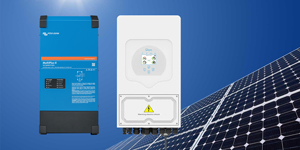LITHIUM DEEP CELL BATTERY
Lithium Battery Supplier-
EU Stock 12V 280Ah LiFePO4 Battery GP-LA12-280AH Premium Deep Cycle Battery 3.5kWh Energy
Free Shipping Ship from China Get Price
-
EU Stock 12V 280Ah LiFePO4 Battery GP-LA12-280AH Basic Deep Cycle Battery 3.5kWh Energy
Free Shipping Ship from China Get Price
-
4 Pieces EVE LF280K 280Ah Cells
Free Shipping Ship from China US$268.00
-
Gobel Power 51.2V 600Ah 30kWh Server Rack LiFePO4 Battery
Ship from China Get Price
-
AU Stock 12V 280Ah LiFePO4 Battery GP-LA12-280AH Premium Deep Cycle Battery 3.5kWh Energy
Free Shipping Ship from China US$499.00
-
USA Stock 12V 280Ah LiFePO4 Battery GP-LA12-280AH Premium Deep Cycle Battery 3.5kWh Energy
Free Shipping Ship from China US$499.00
-
EU Stock 12V 280Ah LiFePO4 Battery GP-LA12-280AH Premium Deep Cycle Battery 3.5kWh Energy
Free Shipping Ship from China Get Price
-
Exclusive Sale 12V 280Ah LiFePO4 Battery Deep Cycle Marine Battery 3.5kWh Energy
Ship from China US$549.00
-
EV Grade A+ EVE 3.2V 314Ah MB31 Rechargeable LiFePO4 Battery Cell
Ship from China US$63.00
-
12V 280Ah LiFePO4 Battery GP-LA12-280AH Standard Deep Cycle Battery 3.5kWh Energy
Ship from China US$358.00
-
USA Stock Gobel Power GP-SR1-PC200 48V 280Ah LiFePO4 Battery
Free Shipping Ship from China Get Price
-
Choose Your Battery Gobel Power GP-SR1-PC200 Standard 51.2V 280Ah 15kWh LiFePO4 Server Rack Battery
Free Shipping Ship from China Get Price
-
EU Stock Gobel Power GP-SR1-PC200 48V 280Ah LiFePO4 Battery
Free Shipping Ship from China Get Price
-
EU Stock EVE 3.2V 280Ah Rechargeable LiFePO4 Battery Cell
Free Shipping Ship from China US$75.00
-
Gotion 340Ah LiFePO4 Lithium Battery Cell
Ship from China US$86.00
-
CATL 3.2V 120Ah LiFePO4 Lithium Battery Cell
Ship from China Get Price
-
CATL 3.2V 240Ah LiFePO4 Lithium Battery Cell
Ship from China Get Price
-
CATL 3.2V 271Ah LiFePO4 Lithium Battery Cell
Ship from China Get Price
-
CALB 3.2V 100Ah LiFePO4 Lithium Battery Cell Wholesale
Ship from China Get Price
-
GanFeng 3.2V 100Ah LiFePO4 Lithium Battery Cell Wholesale
Ship from China Get Price
-
Solution Battery Module -
Solution LTO Cells for Car Audio
Lithium deep cell batteries, also known as lithium-ion deep cycle batteries, are a type of rechargeable power storage solution designed to provide long-lasting, reliable, and efficient energy storage and backup for a wide range of applications. Featuring a lithium-ion chemistry and deep cycle design, these batteries are engineered to withstand the rigors of frequent charge and discharge cycles, making them an ideal choice for heavy-duty applications such as renewable energy systems, backup power systems, and industrial equipment. Compared to traditional lead-acid batteries, lithium deep cell batteries offer a significantly longer lifespan, typically lasting 10-15 years or more, depending on the depth of discharge and charging regimen. Additionally, lithium deep cell batteries boast a higher energy density, requiring less physical space and weighing less than equivalent lead-acid batteries. One of the core advantages of lithium deep cell batteries lies in their ability to rapidly recharge, allowing for a rapid return to fully charged status, which is particularly advantageous for applications in which backup power is essential. Lithium deep cell batteries are also known for their reduced maintenance requirements, boasting fewer moving parts and no need for conventional maintenance, such as adding H2SO4 acid or checking and replacing the electrolyte. Furthermore, lithium deep cell batteries are more environmentally friendly, containing fewer toxic substances and requiring less resources for production. Additionally, their extended lifespan reduces the need for frequent replacements, minimizing electronic waste and conserving natural resources. When selecting lithium deep cell batteries for your application, it's essential to consider factors such as capacity, voltage, and cycle life to ensure optimal performance and longevity. By investing in lithium deep cell batteries, organizations can reap significant benefits, including enhanced reliability, reduced operational costs, and a minimized environmental footprint.

 Europe Warehouse
Europe Warehouse





































